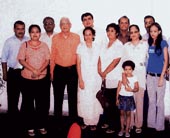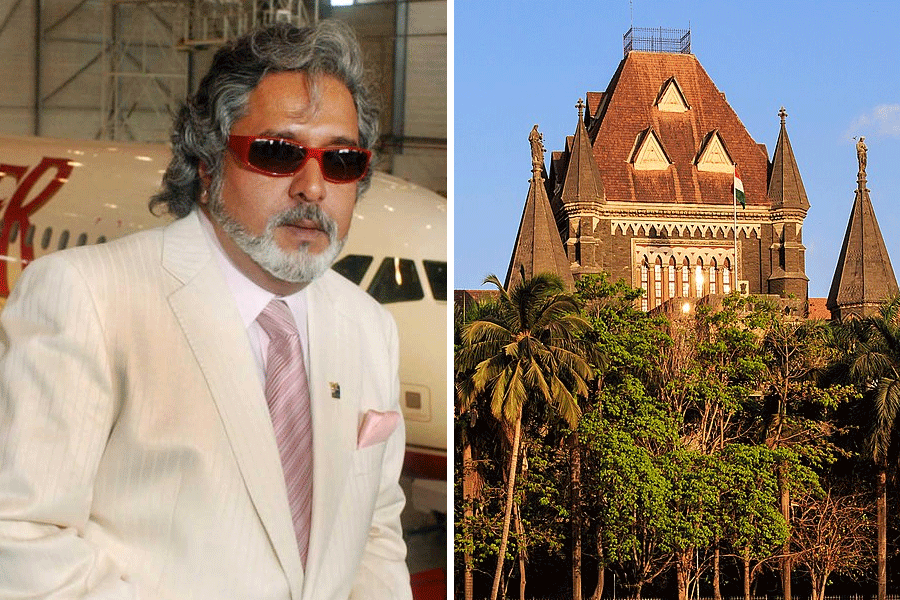 |
| Members of Assam’s Anglo-Indian community with Neil and Barry O’Brien in Guwahati |
Guwahati, July 31: Firang accent, ale and high heels — that’s how most people stereotype them.
But few know that the true descendants of the Raj celebrate August 2 each year as World Anglo Indian Day to commemorate the decision of Parliament to give them the status of an Indian community with rights and representation.
As Assam’s Anglo-Indian community gathers to celebrate the day tomorrow, the revelry will be laced with anxiety. Will its demand for representation in the Assembly finally be fulfilled?
Article 333 of the Constitution provides that one Anglo-Indian member should be nominated by the governor to the state Assembly, but the community in Assam has not been represented in the House till date.
“Call it the neglect of the successive state governments or lack of awareness on the part of the community, not for once an Anglo-Indian representative has made it to the state Assembly. Without any representation, we are finding it hard to voice our problems and plight. Once a flourishing community in the state, we are now dying a slow death,” said Barnabas Milton Queah, president of the Anglo-Indian Association of Assam.
The association was formed in 1979 under Donald Paul, legendary hockey player.
Queah, the deputy secretary in the agriculture department, said the association has formally moved the chief minister and the governor to select or nominate a representative from the community to the Assembly.
Raj Bhavan sources confirmed receiving the memorandum and said Governor Lt Gen. (retd) Ajai Singh was looking into the matter.
On its part, the chief minister’s office has sent the memorandum to the minority development department for consideration.
“We are looking into it and soon our recommendations will be sent to the chief minister’s office,” said a source in that department.
The president-in-chief of the All India Anglo-Indian Association, Neil O’Brien, and his son Barry have lent their support to the campaign.
During a recent visit to Guwahati, the O’Briens met the members of the Assam association for discussion.
By legal definition, an Anglo-Indian is a person whose progenitors were of European descent.
Eurasians began settling in the state after the arrival of the Portuguese at Badarpur and Padrighat in Karimganj district in the 18th century.
The growth of tea estates, oil companies and the establishment of the post and telegraph department was the other major reason why Assam attracted Anglo-Indian settlement.
The next bout of settlement took place following the establishment of the Assam Bengal Railways in 1903, when a sizeable number of Portuguese and British decided to make the state their home. Queah’s father, too, was an employee of Assam Bengal Railway.
With a population that has dwindled to 10,000, the community now thinks it is high time they found some representation.
“Until and unless we are politically visible, our plight will not change. We are natives of the land and we are asking the government to give us our rights,” said Michael Brookes, another member of the association.
“The association is trying its best to foster friendship and unity in the community and once again make its presence felt in the state. Today, we have come to a point when we felt left out. We have to explain who we are to our fellow beings in the state. At times, we are treated like outsiders and thus we have seen largescale migration of Anglo-Indian community from the state in the past,” said Brookes.
Cakes and ale still prevail, but so do pitha and machor tenga, for this community. Is anybody listening?










